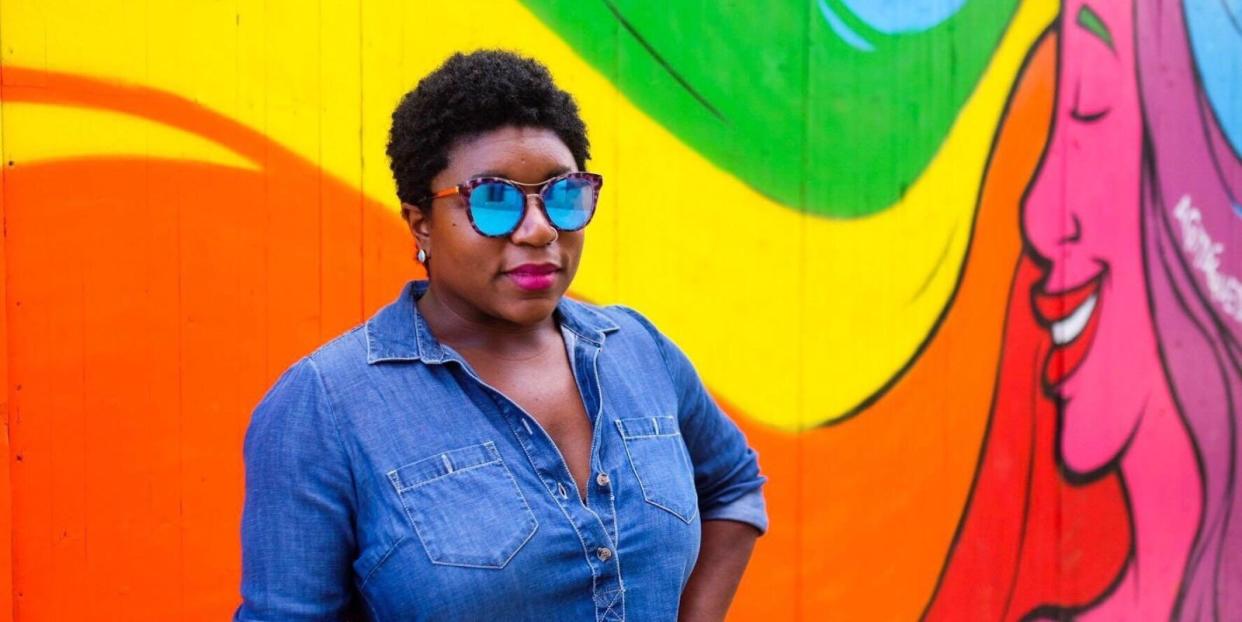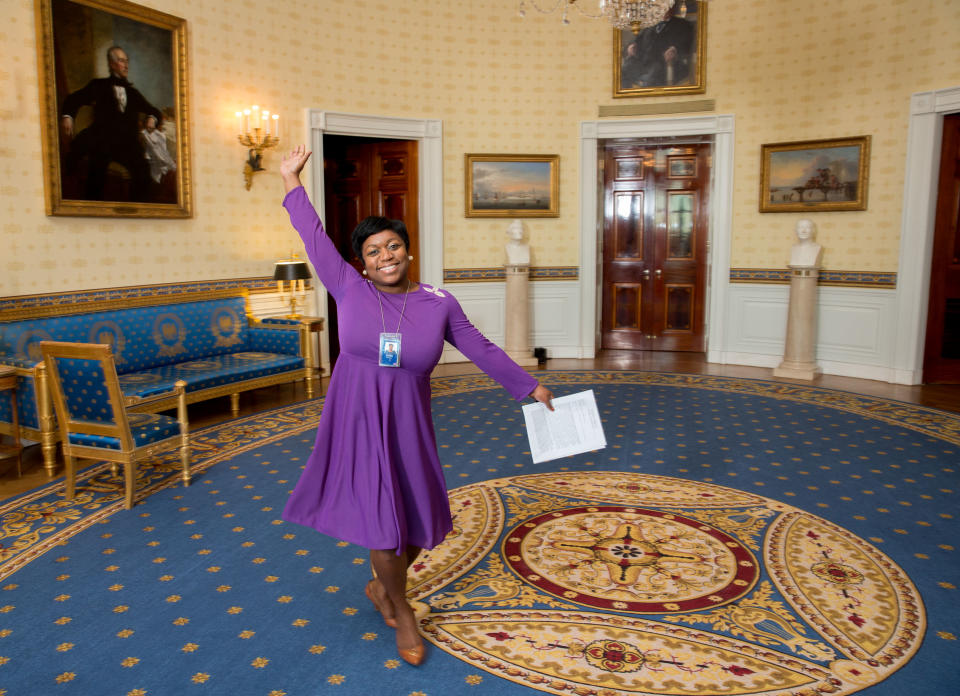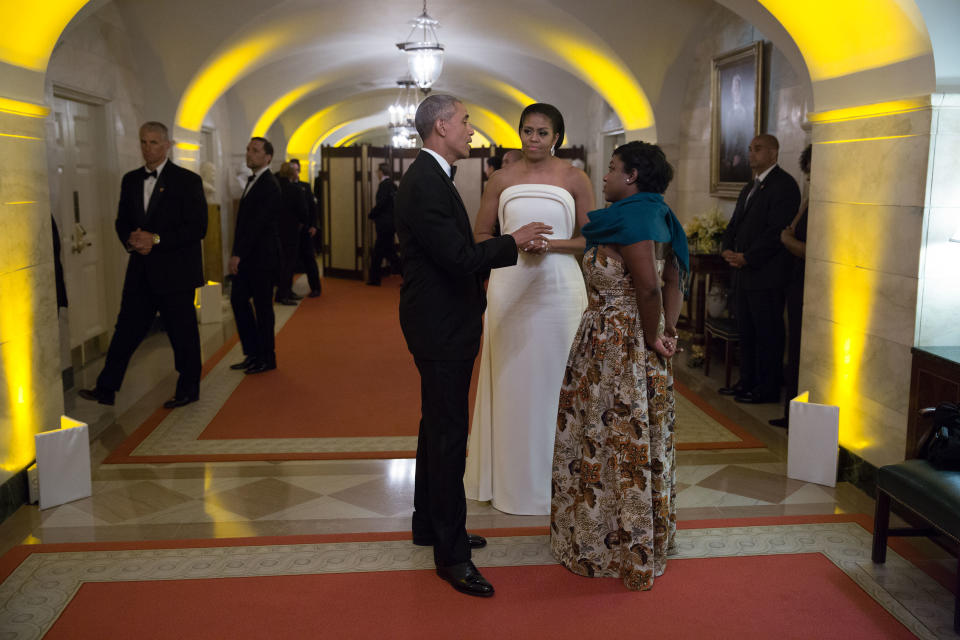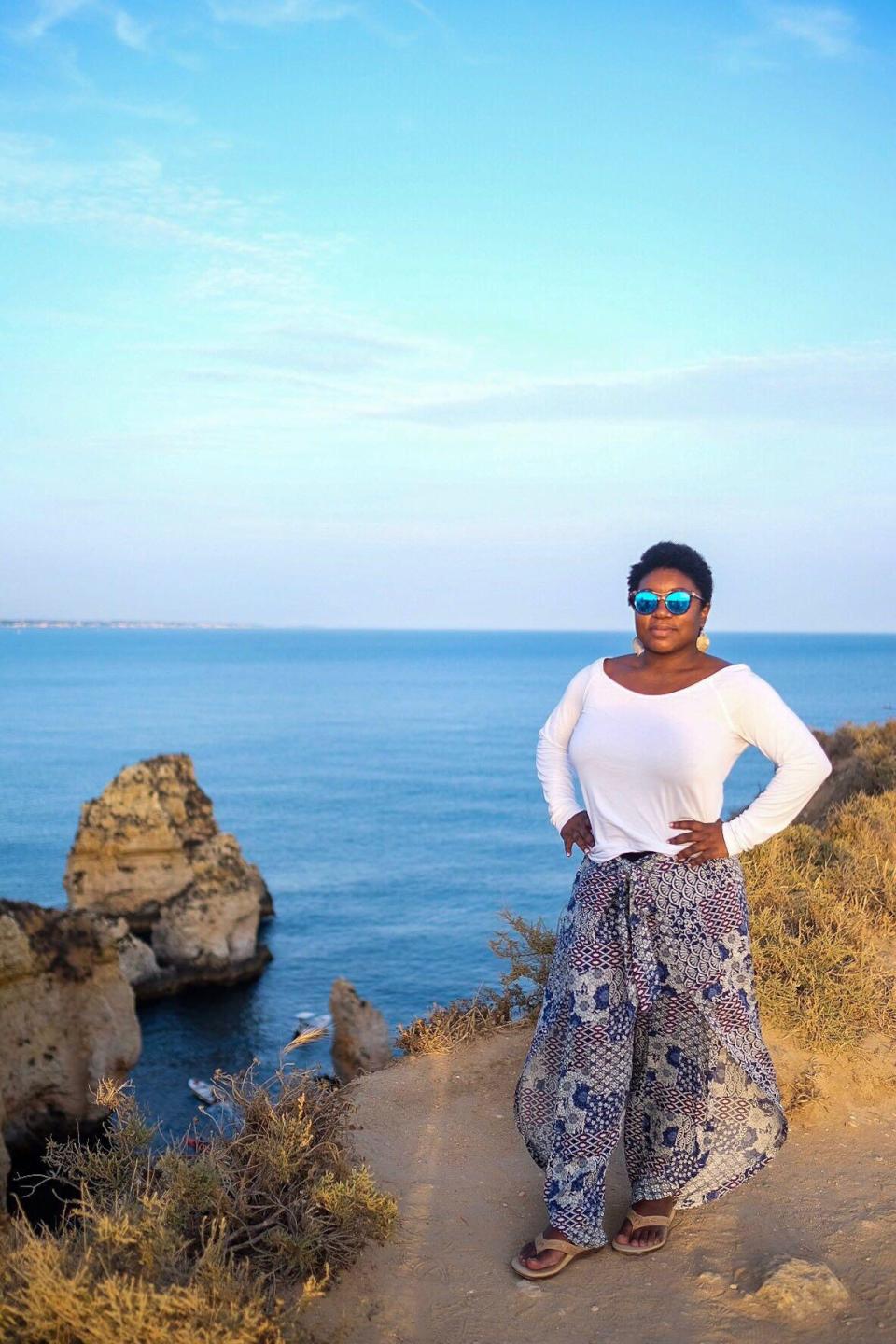How I Went From A 31-Year-Old White House Intern To Obama's Social Secretary

There was a time, not so long ago, when staff in the White House could tell the President of the United States what to do. One person with such power was Deesha Dyer, who was Barack Obama's social secretary from 2015 to 2017. For the final two years of his second term, Dyer, who began as an intern in the Office of Scheduling and Advance in 2009, was charged with managing every social event-political and personal-for the President, First Lady, and senior West Wing staff.
Historically, the role was filled by white women with impeccable social pedigree. But when the Obamas came to Washington, Desirée Rogers became the first black woman to hold the title and manage the 'People's House.' Six years later, when Dyer ascended to the position, she hardly had the CV of a Washington insider.
Dyer grew up in West Philadelphia and attended the Milton Hershey School, a full-scholarship boarding school founded by the chocolatier in Pennsylvania. After dropping out of college, she got a job writing about hip-hop-among other side jobs. She earned an associate's degree in women's studies from a community college, and became a White House intern-at 31. (During the Obama administration, the average intern was 19- to 22-years old).

Now at 39, she runs BeGirl.world-a non-profit program that encourages young women, through travel and exploration, to consider their future outside of their own neighbourhoods and circumstances. Below, Dyer talks about the non-traditional career journey that led her to the White House-and what she learned along the way.
Your life path was anything but linear. You've worked in property and you've also been a hip-hop reporter in Philadelphia.
I don't want to regret not doing or trying something. That, combined with survival, is the formula [to keep going]. When I moved to Philadelphia and didn't have a job, a temp agency placed me at a property company-and that turned into nine years. Hip-hop was really finding out where I fit in. I love the culture, so I sought out to expose the rest of it. I just found a way to contribute. I always kept going.
I just knew that I should have a legal job, make legal money, and pay all my bills.
How did you know what direction to follow? Was there an 'aha moment' or an identifiable fork in the road?
Nope, no 'aha moment' at all. Having a career path was not something I grew up around or aspired to do in my life. I just knew that I should have a legal job, make legal money, and pay all my bills. I think career paths are very important, but I believe that we have major shifts as people every few years. I always asked myself what I liked doing that could help the community. That's what led me to most of my career choices.
You were in yours 30s when you started interning at the White House. What was going on in your head at the time?
I wanted to be part of the hope/change movement that Barack and Michelle Obama were creating. I felt alive, rejuvenated, and so inspired that they were black. They were ordinary people who had extraordinary aspirations, their political views aligned with mine, and I honestly felt like I had to something to contribute.
I was 30 in community college, but I relied on my life experience to help get me in.
I don't know what was going on in my head. I think it was a whole bunch of doubt, mixed with fear, mixed with belief in my ability to sell myself in a way that others would find beneficial and worthy. I just knew that if they took a chance on me, they wouldn't regret it. I was 30 in community college, but I relied on my life experience to help get me in. It was scary, but not daunting. What made me the most nervous was how different I was than every other intern or person working at the White House. I overcame that by just continuing to do the best I could, which worked and turned into a seven-year career.

How did you overcome low points and moments of self-doubt?
From day one, there were moments of doubt: Would anyone find out that my blazer was from [bargain store] Ross and my pants were from [American department store] Kmart? Was my hair okay? Was I too fat? Would I have to take out my nose ring? How do I respond to supervisors who are younger than me? Will people find out I dropped out of college? How about my debt? Or the time I was pregnant? Or evicted from my apartment? What if they ask me about politics? I didn't know that much about politics and who was who. As social secretary, these doubts became affirmations of success for me. I became comfortable with being honest with who I was, in hopes that my truth would help someone else or help me stand confidently in who I am.
Was I too fat? Would I have to take out my nose ring? Will people find out I dropped out of college? My debt? Or the time I was pregnant? Or evicted from my apartment? What if they ask me about politics?
What lessons did you take away from working as the White House social secretary?
I learned how important it was to control your narrative-or someone will do it for you. You must also be comfortable with yourself and your decisions and see yourself as a leader worthy of the responsibilities that have been given to you. I had to learn that my being placed in a high position wasn't an accident or fluke. Confidence is the most valuable lesson.
The one lesson that I have retained is that you must give yourself a break sometimes. I was hard on myself and my staff because the expectation of perfection was so high that I would forget that we're human. So towards the end of the job, I did my best to focus on wellness, learning, and growth.
How were the Obamas as managers?
They were great managers! What I learned most from them is to be mindful of my reactions in situations. There are times that I would just want to react-especially out of emotion, which I don't think is always a bad thing. I learned that sometimes my Philly attitude and temperament was necessary. But most of the time, I had to humble myself, collect my thoughts, get feedback, and then react.
Sometimes my Philly attitude and temperament was necessary. But most of the time I had to humble myself.
You're big on mentorship and helping the community. Why this is so close to your heart?
I like helping people, and I like when people help me. I'm not an island, and I adopt the philosophy that none of us are. I was in middle school when AIDS hit the news, and I didn't buy the narrative that only gay men or people who used drugs were the only people who contracted the virus. That was all I saw in the coverage. So I sought to learn more about HIV/AIDS, which plunged me in to a decade of activism and education-including a hip-hop program called 'Cover Your Lover.' Now I run a teen travel program for girls called beGirl.world. We empower through travel and global education, trying to get more young black girls to study abroad, go in to Foreign Service, and overall just explore outside of their neighborhoods.
What's the career advice that women need to hear more often?

Give up the obsession of having it all, not having it all, or trying to get it all. My all may not be your all, and no one can speak on behalf of all women, so don't beat yourself up about the notion of "all." Obsess about something productive that doesn't make you feel bad in the end.
It's also extremely important that you speak up when injustice or ignorance become visible to you. We all have bills to pay, and no one wants to rock the boat. But in these times, we must speak up against things that just aren't right. No one wants to be "that person" who always flags something that isn't right, but it's very important.
And develop the kind of confidence that has you looking around any room and saying, "I deserve to be here." Because you do.
You Might Also Like

